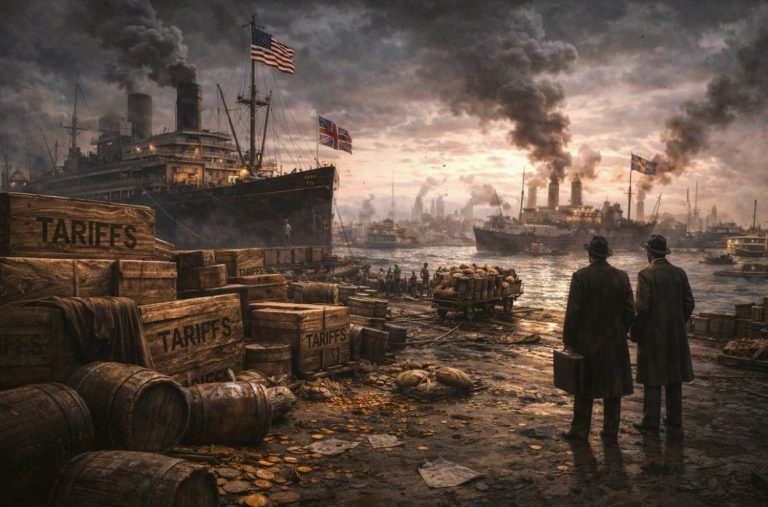


By Matthew A. McIntosh
Public Historian
Brewminate
When Power Needs a Makeover
Authoritarian regimes have long relied on force, censorship, and patronage to consolidate control at home. But in the global age, the autocrat’s dilemma stretches beyond domestic borders. Perception matters. And with international legitimacy comes access to investment, trade deals, military cooperation, and geopolitical soft power.
The twenty-first century dictator must do more than rule. He must look respectable.
To this end, many have turned not to their ministries or propagandists, but to professional public relations firms headquartered in London, New York, and Washington. These firms are not relics of some Cold War information war. They are contemporary, polished, and remarkably effective.
They do not manufacture tanks. They manufacture trust.
The Business of Image Laundering
In recent decades, a growing body of evidence has surfaced documenting the quiet relationships between authoritarian governments and PR giants in the West. These partnerships are not always illegal, though they are frequently controversial. They involve contracts worth millions. Sometimes tens of millions. Their goal is singular: to reframe the regime, often through subtle campaigns that avoid overt lies but strategically shape the narrative.
Consider Equatorial Guinea. In the early 2000s, this tiny, oil-rich nation became infamous for its repression, corruption, and extreme inequality. Yet the government hired several U.S.-based firms to promote the image of President Teodoro Obiang Nguema Mbasogo as a modernizing reformer. Campaigns included op-eds placed in respected outlets, glossy brochures for investors, and lobbying to soften public criticism by U.S. officials.
This was not unique. Kazakhstan, Egypt, Saudi Arabia, China, Rwanda, and others have all, at one point or another, hired Western consultants to advise on messaging, manage foreign media relations, or facilitate high-profile events designed to convey openness and reform.
The euphemism for this is “strategic communications.” Critics call it image laundering.
Soft Power, Hard Truths
For PR firms, these contracts are often framed as pragmatic. The argument goes that if a regime is going to operate on the world stage, it is better they be guided by professionals who encourage engagement, transparency, or even slight reforms.
Yet the net effect is rarely benign. These efforts often delay meaningful accountability by confusing or pacifying international observers. When a regime accused of torture or electoral fraud hosts an elegant business summit or funds an art exhibition, the goal is not to change. The goal is to distract.
Soft power works most insidiously when it coats repression in respectability.
There is also the matter of media access. When a well-paid firm places an op-ed in the pages of a major newspaper or brokers a favorable interview with a Western broadcaster, it raises a difficult question: is the platform complicit? At what point does journalism become a relay station for state propaganda?
These are not merely theoretical dilemmas. They shape public understanding and policy responses in real time.
The Legal and Ethical Gray Zone
One reason this trend persists is because it rarely breaks laws. In the United States, the Foreign Agents Registration Act (FARA) requires disclosure of work done on behalf of foreign governments. But enforcement is spotty, and the line between influence and representation is easily blurred.
Many firms skirt the label of foreign agent by claiming they are not lobbying, only providing communications support. They operate under layers of subcontracting. They use intermediaries. They describe their clients in abstract terms like “development-focused government stakeholders.”
Meanwhile, universities, think tanks, and even charities occasionally benefit from this ecosystem through sponsored panels, research grants, or speaking engagements financed by clients with troubling records.
The effect is cumulative. Over time, the regime appears more legitimate not because it has changed, but because its critics have been drowned out or nudged to the margins of discourse.
When PR Becomes Policy
Perhaps the most chilling consequence of authoritarian PR campaigns is not in how they clean up reputations, but in how they inform policy.
If policymakers in democratic countries begin to view these regimes through a sanitized lens, the likelihood of meaningful sanctions, diplomatic isolation, or human rights pressure diminishes. Instead of confronting repression, the global system may quietly adapt to it.
This is especially dangerous in a world already struggling with democratic backsliding. The normalization of authoritarian narratives, wrapped in polished presentations and aspirational language, creates a distorted playing field. Civil society actors and dissidents have to compete not only with state censors but with professional storytellers working on behalf of their oppressors.
In this climate, truth becomes relative, and suffering is softened into silence.
A Call for Transparency
The problem is not that all regimes should be cut off from dialogue. The problem is that the mechanisms for that dialogue have been co-opted. When image becomes more valuable than reform, PR becomes an instrument of repression.
A global reckoning with this practice is overdue. Journalists, researchers, and policymakers have begun to track and expose these networks, but regulation remains weak and enforcement lax. Transparency must be more than a disclosure form buried on a government website. It must be a norm embedded in how international actors engage with power. Western PR firms have every right to choose their clients. But democracies have every right to ask: at what cost?
Originally published by Brewminate, 07.14.2025, under the terms of a Creative Commons Attribution-NonCommercial-NoDerivatives 4.0 International license.


